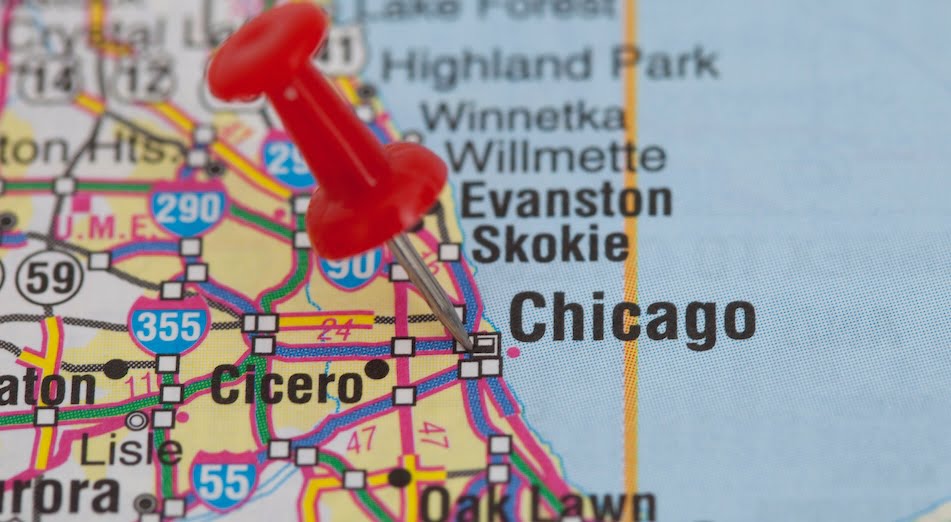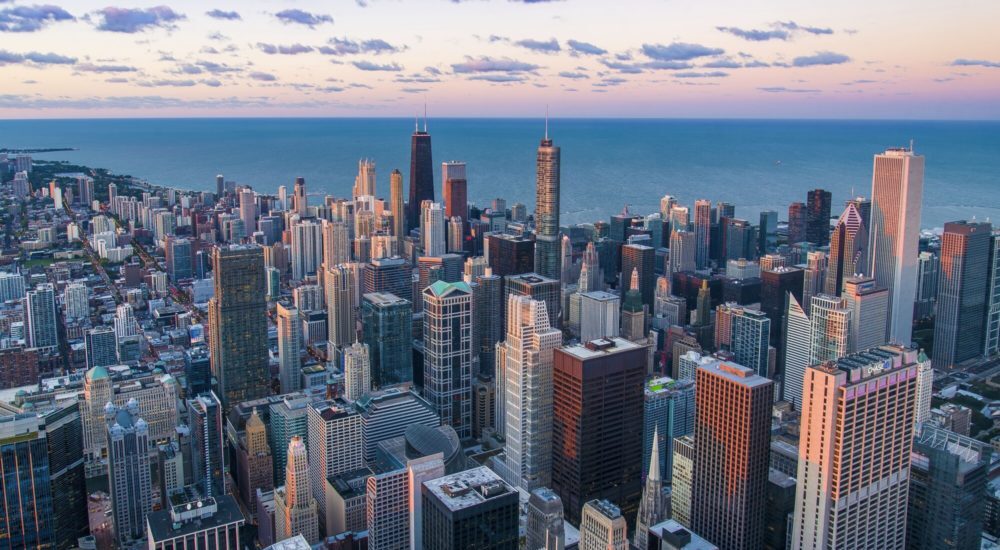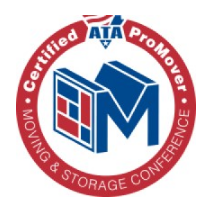Moving to Chicago? Complete Relocation Guide & Tips (2024)

Picture yourself on the brink of an electrifying new chapter as you prepare to make Chicago your home. The Windy City’s iconic skyline, with its soaring skyscrapers and architectural marvels, invites you to explore its diverse neighborhoods and engage with its thriving cultural scene.
From the pulsating energy of The Loop to the trendy streets of Wicker Park, each area boasts its own unique character and allure. As you begin this exciting journey, it’s natural to feel a mix of enthusiasm and uncertainty about what life in this vibrant city has in store.
To ensure a smooth transition, it’s essential to equip yourself with the knowledge and insights needed to address the challenges that come with relocation.
By thoroughly researching neighborhoods, securing suitable housing, mastering public transportation, and adapting to Chicago’s distinct climate, you’ll lay the groundwork for a successful move.
Uncover the keys to establishing yourself professionally in your new home by exploring the city’s robust job market and esteemed educational institutions.
Indulge in Chicago’s world-famous culinary delights, visit its renowned museums, participate in lively festivals, and unwind in its picturesque outdoor spaces to fully embrace the city’s diverse lifestyle.
Chicago has something to offer everyone, whether you’re a young professional pursuing new opportunities, a family looking for a fresh start, or a retiree eager to embrace the excitement of urban living.
With its unparalleled combination of culture, history, and innovation, the Windy City offers an unforgettable experience for those who choose to call it home.
Get ready to be swept away by the city’s infectious energy, forge lasting connections, and create cherished memories. Discover the secrets to successfully relocating to Chicago and begin an incredible journey in the Midwest.

How to Move to Chicago: Step-by-Step Guide
As you gear up for your exciting move to Chicago, laying a solid foundation is crucial for a smooth transition. Let’s walk through the essential steps of researching neighborhoods, assessing living costs, and securing the perfect home, empowering you to make informed decisions and avoid potential pitfalls along the way.
Researching Chicago’s Neighborhoods
Exploring Popular Areas Like Lincoln Park, Wicker Park, and The Loop
Get ready to fall in love with Chicago’s diverse neighborhoods, each with its own unique charm and character.
From the lush green spaces and incredible dining scene of Lincoln Park to the active art community and fashionable shops of Wicker Park, there’s something for everyone in this dynamic city.
Don’t forget to explore The Loop, Chicago’s buzzing downtown hub, which offers a taste of the varied lifestyles the city has to offer.
Considering Factors Such as Safety, Accessibility, and Amenities
While popularity is an important factor, it’s not the only consideration when choosing your ideal neighborhood. Take the time to explore crime statistics and speak with locals or real estate agents to assess the safety of each area.
Evaluate public transportation accessibility, proximity to work or school, and the availability of essential amenities like grocery stores, healthcare facilities, and recreational spaces to ensure your chosen neighborhood meets your needs and preferences.
Assessing the Cost of Living
Comparing Chicago’s Expenses to Other Major Cities
Before taking the plunge, it’s wise to understand how Chicago’s living costs compare to other major cities. While generally more affordable than coastal giants like New York or San Francisco, it’s still crucial to have a clear picture of the expenses you’ll encounter.
Take some time to research and compare the costs of housing, groceries, utilities, transportation, and entertainment to ensure Chicago aligns with your financial goals and budget.
Budgeting for Rent, Utilities, Transportation, and Entertainment
Armed with a general idea of Chicago’s living costs, it’s time to craft a detailed budget that covers all your anticipated expenses. Start by determining a comfortable rent allocation, considering the average prices in your desired neighborhoods.
Don’t forget to account for utilities like electricity, gas, water, and internet, as well as transportation costs, whether you plan to use public transit or own a vehicle.
Set aside funds for entertainment and leisure activities, as exploring Chicago’s diverse cultural offerings is an important part of the experience. By carefully budgeting for these expenses, you’ll be better prepared to enjoy all that the city has to offer without financial stress.
Securing Housing
Deciding Between Renting and Buying
One of the biggest decisions you’ll face when moving to Chicago is whether to rent or buy a home. If you’re planning a shorter stay or value flexibility, renting might be the way to go. However, if you’re committed to making Chicago your long-term home and have the financial means, buying a property can be a smart investment.
Consider factors like your timeline, budget, and lifestyle preferences when weighing the pros and cons of each option. Take the time to explore both rental and purchase opportunities to find the best fit for your unique situation.
Navigating the Rental Market and Home-Buying Process
Exploring Chicago’s housing options can be a complex process, whether you decide to rent or purchase a home. For renters, start your search early and be ready to act fast when you find a desirable property, as competition can be intense.
Utilize online listing platforms, work with a reputable real estate agent, and consider finding a reliable moving company to streamline the process and ensure a smooth transition.
If you’re buying a home, familiarize yourself with the steps involved, from getting pre-approved for a mortgage to conducting thorough property inspections and negotiating the final contract. Don’t hesitate to calculate your moving costs to get a clear picture of the financial details involved and plan accordingly.
Understanding Property Taxes and Insurance
Before finalizing your housing decision, it’s essential to understand the additional costs associated with property ownership in Chicago. Research the property tax rates in your desired neighborhoods, as they can vary significantly across the city.
Ensure you have a clear grasp of the insurance requirements for your new home, whether you’re renting or buying.
Factor these expenses into your budget to avoid any surprises down the line and to maintain a stable financial foundation as you settle into your new life in Chicago. By taking the time to understand these costs upfront, you’ll be better prepared to make informed decisions and enjoy a worry-free transition to your new home.
Essential Chicago Moving Checklist
Moving to Chicago requires careful planning and organization. This comprehensive checklist will ensure you don’t miss any crucial steps in your relocation process. From pre-move preparations to your first week in the city, we’ve broken down everything you need to do into manageable tasks.
3 Months Before Moving
Before you make the big move to Chicago, start with these essential planning steps. Begin by researching neighborhoods that match your lifestyle and budget, considering factors like commute times and local amenities. Contact multiple moving companies for quotes and start decluttering your current home. This is also the time to notify your employer, request time off for the move, and begin transferring or canceling local memberships and subscriptions.
1 Month Before Moving
As your moving date approaches, focus on logistics and paperwork. Schedule utility transfers for both your current and new residence, ensuring services like electricity, gas, and internet will be ready when you arrive. Update your address with the USPS, bank, credit card companies, and other important institutions. Start packing non-essential items and create an inventory of your belongings. This is also the time to obtain parking permits if needed for your moving truck in Chicago.
Week of the Move
The final week requires attention to detail and organization. Pack a separate box with essentials you’ll need immediately upon arrival, including toiletries, basic tools, and cleaning supplies. Confirm details with your moving company and ensure you have all necessary documentation ready. If you’re driving to Chicago, get your vehicle serviced and plan your route, accounting for potential traffic and weather conditions.
First Week in Chicago
Your first week in the city is crucial for getting settled. Priority tasks include obtaining your Illinois driver’s license, registering your vehicle if applicable, and setting up your Chicago City Sticker. Locate essential services like grocery stores, pharmacies, and medical facilities in your neighborhood. Take time to explore your local area and begin establishing your new routine.
Remember to keep important documents easily accessible throughout your move and maintain a detailed timeline of tasks. This checklist serves as a framework that you can customize based on your specific situation and needs.
Embracing Chicago’s Lifestyle
As you settle into your new home in Chicago, get ready to embrace the city’s lively atmosphere and discover all it has to offer.
From its vibrant cultural fabric and renowned culinary scene to its breathtaking outdoor spaces and exciting entertainment options, Chicago truly has something for everyone.
Immersing in the City’s Rich Culture
Exploring World-Class Museums and Art Galleries
Chicago is a cultural powerhouse, boasting an impressive array of world-class museums and art galleries that cater to every interest.
The Art Institute of Chicago, one of the oldest and largest museums in the United States, houses an extensive collection of impressionist and post-impressionist works, while the Field Museum of Natural History showcases fascinating exhibits on dinosaurs, ancient cultures, and the natural world.
Attending Festivals, Concerts, and Theatre Performances
The city’s cultural scene extends far beyond its museums, with a packed calendar of festivals, concerts, and theater performances throughout the year.
From the Chicago Blues Festival, which celebrates the city’s rich blues heritage, to the Chicago Jazz Festival, which attracts top talent from around the world, there’s always something exciting happening.
Theater enthusiasts will be thrilled by the diverse offerings in the Theater District, ranging from Broadway hits to experimental productions.
Savoring the Culinary Scene
Indulging in Iconic Dishes Like Deep-Dish Pizza and Chicago-Style Hot Dogs
No exploration of Chicago’s lifestyle is complete without diving into its legendary culinary scene.
The city is famous for its deep-dish pizza, a hearty, cheese-filled delight that’s sure to satisfy even the most voracious appetites, and equally iconic are Chicago-style hot dogs, topped with a signature combination of yellow mustard, chopped onions, sweet pickle relish, tomato slices, and a dill pickle spear, all nestled in a poppy seed bun.
Discovering Local Favorites and Hidden Gems
While deep-dish pizza and hot dogs may be the most well-known culinary offerings, Chicago’s food scene is incredibly diverse and full of hidden gems waiting to be discovered.
From the mouth watering Italian beef sandwiches found in unassuming neighborhood joints to the innovative creations of Michelin-starred chefs, there’s no shortage of delicious options to explore. Venturing off the beaten path and seeking out local favorites often provides the most authentic and memorable dining experiences.
Enjoying the Great Outdoors
Strolling Through Millennium Park and Along the Lakefront Trail
Chicago may be known as an urban jungle, but it also boasts a wealth of stunning outdoor spaces that provide a welcome respite from the hustle and bustle of city life.
Millennium Park, a 24.5-acre oasis situated in downtown, is a must-visit destination, featuring iconic attractions like Cloud Gate (affectionately known as “The Bean”) and the Jay Pritzker Pavilion, which hosts free concerts and events throughout the summer.
The Lakefront Trail, a stunning 18-mile path along the shores of Lake Michigan, is perfect for walking, jogging, or cycling.
Taking Advantage of Chicago’s Parks and Green Spaces
Beyond Millennium Park, Chicago is home to an extensive network of parks and green spaces that offer endless opportunities for outdoor recreation.
Lincoln Park, the city’s largest park, features a zoo, a conservatory, and numerous sports fields and courts. Whether you’re looking to relax with a picnic, play a game of pick-up basketball, or simply soak up the sun, Chicago’s parks have something for everyone.
Navigating the City
As you settle into your new life in Chicago, you’ll quickly discover the many engaging ways to explore this dynamic city. With a variety of transportation options, each offering its own benefits and challenges, you’ll soon find the perfect fit for your needs.
Mastering Public Transportation
Understanding the Chicago Transit Authority (CTA) System
The Chicago Transit Authority (CTA) serves as the backbone of the city’s public transportation network, offering an extensive system of buses and trains that cover the entire city.
The iconic “L” trains, short for “elevated,” provide a convenient and affordable way to travel between neighborhoods, while buses fill in the gaps and offer more localized service.
To make the most of the CTA, take some time to familiarize yourself with the various lines, routes, and schedules. Consider purchasing a Ventra card for seamless, contactless payment, making your commute even more efficient.
Utilizing the Metra Commuter Rail for Suburban Commutes
For those living or working in the suburbs, the Metra commuter rail system is an invaluable resource. With 11 lines radiating out from downtown Chicago, Metra connects the city to its surrounding suburbs, offering a comfortable and efficient way to travel longer distances.
Be sure to check the schedules and plan your trips accordingly, as Metra trains typically run less frequently than CTA buses and trains. A little extra planning can go a long way in ensuring a smooth commute.
Driving in Chicago
Dealing with Traffic Congestion and Parking Challenges
If you choose to drive in Chicago, be prepared to face some challenges. Traffic congestion can be a significant issue, especially during rush hours, and parking can be scarce and expensive in certain areas.
To minimize stress and avoid delays, plan your routes in advance and allow extra time for travel. Consider using parking apps or reserving spots in advance when possible to save time and reduce frustration.
Familiarizing Yourself with the City’s Grid System
One advantage of driving in Chicago is the city’s grid system, which makes navigation relatively straightforward. The city is divided into a north-south and east-west grid, with major streets running at mile intervals.
Knowing the grid system can help you estimate distances and travel times, making it easier to find your way around the city. With some experience, you’ll be exploring Chicago’s streets with confidence.
Exploring Alternative Transportation Options
Biking on Chicago’s Extensive Network of Bike Lanes
Chicago has made significant investments in its cycling infrastructure, with an extensive network of bike lanes and trails that make it easy and safe to get around on two wheels. The city’s Divvy bike-sharing program offers a convenient and affordable way to access bikes, with stations located throughout the city.
Whether you’re traveling to work or discovering the city’s neighborhoods, biking can be an enjoyable and environmentally conscious way to explore Chicago. It’s a great alternative to driving or using public transportation, allowing you to experience the city from a unique perspective.
Using Ridesharing Services and Taxis
For those times when public transportation or driving isn’t an option, ridesharing services like Uber and Lyft, as well as traditional taxis, can be a convenient alternative.
These services are widely available throughout the city and can be especially useful for late-night trips or when you need to travel to areas not well-served by public transportation.
Keep in mind that prices can vary based on demand and traffic conditions. Be sure to check the estimated fare before requesting a ride to avoid any surprises and to help you budget accordingly.
Thriving in Chicago’s Economy
Discovering your niche in Chicago’s workforce and achieving your professional dreams starts with exploring the city’s diverse business opportunities. With a thriving economy spanning a wide range of industries, Chicago offers something for everyone.
Understanding the Job Market
Identifying Key Industries and Major Employers
Chicago’s economy is driven by a diverse mix of established and innovative industries, creating a wealth of employment possibilities. From finance and healthcare to technology, manufacturing, and transportation, key sectors abound.
The city proudly hosts numerous Fortune 500 companies like Boeing, McDonald’s, and Walgreens, alongside a thriving startup ecosystem. To maximize your job prospects, investigate industries that match your skills and interests, and keep an eye out for openings at major employers in those fields.
When applying, tailor your applications to showcase your relevant experience and qualifications, helping you stand out from other candidates.
Networking and Job Search Strategies
In Chicago, networking is a powerful tool for uncovering employment opportunities. Expand your professional circle and stay informed about job openings by attending industry events, joining professional organizations, and connecting with alumni from your alma mater.
Use online platforms like LinkedIn to build your network and showcase your expertise. Consider partnering with a local recruiter specializing in your industry for valuable insights and connections that can accelerate your job search.
Pursuing Educational Opportunities
Exploring Renowned Universities and Colleges
Chicago is home to some of the nation’s most prestigious universities and colleges, offering a rich array of educational opportunities. Renowned institutions like the University of Chicago, Northwestern University, and the Illinois Institute of Technology are celebrated for their academic programs and research facilities.
When exploring degree options, consider factors such as location, cost, and specialization to find the best fit for your goals and circumstances.
With Chicago’s diverse educational offerings, you’re sure to find a program that meets your needs, as many universities and colleges offer a wide range of options to suit various interests and career paths.
Accessing Continuing Education and Professional Development Programs
Chicago offers an abundance of continuing education and professional development opportunities beyond traditional degree programs. Many universities and colleges provide certificate programs, workshops, and seminars designed to help professionals sharpen their skills and stay current in their fields.
Organizations like the Chicago Chamber of Commerce and industry-specific associations also offer training and development programs. Investing in these resources will enhance your knowledge, skills, and marketability in the competitive job market.
As you explore the economic environment of Chicago, remember that success often stems from hard work, strategic planning, and adaptability.
By understanding the job market, leveraging networking opportunities, and investing in your education and professional development, you’ll be well-equipped to thrive in Chicago’s thriving economy.
Embrace the challenges and opportunities that come your way, and don’t hesitate to seek guidance from mentors, colleagues, and professional resources along your journey. With determination and the right support, you can establish a rewarding career in the dynamic city of Chicago.
The key is to remain proactive, flexible, and open to new experiences as you explore your professional path, staying focused on your goals and taking advantage of the resources available to thrive in Chicago’s evolving economic environment.
Adapting to Chicago’s Climate
Chicago’s climate is known for its extremes, with frigid winters and hot summers that can take some getting used to. But don’t worry – with the right preparation and mindset, you can not only survive but flourish in the Windy City’s variable weather conditions.
Preparing for Harsh Winters
Investing in Appropriate Clothing and Gear
To stay warm and comfortable during Chicago’s unforgiving winters, invest in a high-quality, insulated coat, along with a hat, gloves, and a scarf. Sturdy, waterproof boots with good traction are also essential for traversing icy sidewalks and slushy streets.
Layering is key, so stock up on thermal underwear, warm socks, and cozy sweaters to help you brave the cold. Keep in mind that temperatures often drop well below freezing, and heavy snowfall can blanket the city.
Weatherproofing Your Home and Vehicle
Ensuring your living space and transportation are prepared for winter is crucial in Chicago. Before the cold sets in, make sure your home is well-insulated and that your heating system is in good working order.
If you own a car, consider investing in winter tires for better traction on snowy and icy roads. It’s also wise to keep an emergency kit in your vehicle, including a blanket, flashlight, and jumper cables, in case you find yourself stranded in inclement weather.
Embracing Each Season
Enjoying Outdoor Activities in the Summer
While Chicago winters can be harsh, the city comes alive during the summer months. Take advantage of the warm weather by exploring the city’s numerous outdoor attractions, such as Millennium Park, the Lincoln Park Zoo, and the Chicago Riverwalk.
Enjoy a picnic or a game of frisbee in one of the city’s many beautiful parks, or take a dip in Lake Michigan at one of the city’s beaches. Just remember to stay hydrated and apply sunscreen, as summer temperatures can soar.
Attending Seasonal Festivals and Events
Chicago hosts a wide array of festivals and events throughout the year, each celebrating the unique character of the city and its diverse communities. Summer brings the Chicago Blues Festival, the Taste of Chicago, and the Air and Water Show.
As the weather cools down, enjoy the autumn colors at the Chicago Botanic Garden or celebrate Oktoberfest in Lincoln Square. Winter brings holiday magic with the Christkindlmarket and ZooLights at the Lincoln Park Zoo, while spring welcomes the Chicago Flower and Garden Show and the St. Patrick’s Day Parade.
By embracing the challenges and opportunities that come with each season, you’ll find that Chicago’s climate is a crucial component of the city’s charm and character.
With the right preparation and a positive attitude, you’ll be able to not only adjust to but genuinely appreciate the variable weather of the Windy City.
Frequently Asked Questions
-
How do I move to Chicago?
Moving to Chicago requires careful planning, starting with choosing a neighborhood that fits your budget and lifestyle preferences. Begin by securing housing 2-3 months in advance, setting up utilities, and either hiring movers or planning a DIY move, then focus on administrative tasks like updating your address and obtaining necessary city permits and documentation.
- What tips do I need for living in Chicago?
Essential Chicago living tips include investing in proper winter gear, learning to navigate the CTA system effectively, and familiarizing yourself with street cleaning schedules in your neighborhood. It’s also crucial to understand the city’s parking regulations, get your City Sticker within 30 days of moving, and learn to maximize the city’s many free cultural offerings and events.
- Is it hard to move to Chicago?
Moving to Chicago is manageable with proper planning and preparation, though the process requires attention to detail regarding housing, transportation, and administrative requirements. The city’s well-organized grid system and extensive public transit make navigation easier, while the variety of neighborhoods offers options for different budgets and lifestyles.
- What are the best neighborhoods for families in Chicago?
Chicago offers a delightful array of family-friendly neighborhoods, each with its own unique charm and amenities. Here are some top picks that cater to the needs of families:
- Lincoln Park: Renowned for its exceptional schools, abundant green spaces, and proximity to the beloved zoo, Lincoln Park is a favorite among families seeking a well-rounded lifestyle.
- Lakeview: This thriving neighborhood boasts a wide range of family-oriented activities and cultivates a strong sense of community, making it an appealing choice for those with children.
- Edison Park: Celebrated for its safety, suburban ambiance, and top-notch schools, Edison Park provides an ideal setting for raising a family in a nurturing environment.
- How reliable is Chicago’s public transportation system?
The Chicago Transit Authority (CTA) efficiently manages the city’s public transportation network, which is widely regarded as dependable and well-connected. Getting around Chicago without a personal vehicle is easy, thanks to the extensive network of buses and iconic “L” trains that cover the city.
While occasional delays or maintenance issues may occur, the CTA remains committed to minimizing disruptions and ensuring a smooth-running system. Commuters can rely on the CTA to transport them to their destinations, whether it’s the daily work commute or an exciting exploration of the city’s countless attractions.
- Are there any hidden costs associated with moving to Chicago?
When planning a move to Chicago, it’s crucial to be mindful of certain additional expenses that may not be immediately apparent. Beyond the evident costs of rent and utilities, residents must account for mandatory city stickers and residential parking permits for their vehicles in most neighborhoods.
Compared to some other cities, the cost of living in Chicago tends to be higher, particularly in areas such as dining out, entertainment, and sales taxes. By incorporating these hidden costs into their financial planning, newcomers can develop a more precise budget and steer clear of any unexpected surprises.
- What is the average salary needed to live comfortably in Chicago?
The average salary required to maintain a comfortable lifestyle in Chicago depends on various factors, including personal preferences, family size, and housing choices.
As a general guideline, a single individual can anticipate needing an annual income of approximately $50,000 to $60,000 to cover essential expenses and enjoy some discretionary spending.
For a family of four, a combined household income of $80,000 to $100,000 or more may be necessary to sustain a comfortable standard of living. It’s important to remember that these figures serve as general benchmarks, and individual needs may vary based on specific circumstances.
- How can I meet new people and make friends in Chicago?
Chicago presents a wealth of opportunities to connect with others and cultivate new friendships. Joining local clubs or organizations that align with personal interests, such as sports teams, book clubs, or volunteer groups, is an excellent way to meet like-minded individuals.
Participating in neighborhood events, festivals, and classes can also promote engagement with the community and expand social circles. Don’t overlook the potential of daily interactions – making an effort to get to know colleagues at work and neighbors can lead to lasting friendships in this thriving city.
Conclusion
Moving to Chicago is an exciting adventure that opens up a city celebrated for its diverse culture, eclectic neighborhoods, and abundant opportunities for personal and professional development.
As you begin this new chapter, embrace the unique experiences that await, from visiting world-renowned museums and savoring culinary delights to forming lasting friendships and creating treasured memories.
While the journey may present challenges, careful planning and a positive mindset will help you manage any obstacles and ensure a smooth transition to life in the Windy City.
By equipping yourself with the right knowledge and insights, you’ll be empowered to make informed decisions, adapt to the city’s rhythm, and establish a fulfilling existence within the Midwest.
Believe in your inner strength and let the infectious energy of Chicago inspire you to pursue your passions and create a life that surpasses your wildest dreams. This incredible journey awaits, and Chicago is ready to welcome you with open arms.
Embrace the excitement and anticipation that comes with this new chapter, knowing that you have access to the tools and information needed for a successful transition. With a positive attitude and a desire to explore, you’ll soon find yourself thriving in the vibrant city of Chicago.
Related Articles
Where to Move from Texas: Top 10 States for Ex-Texans in 2025

Where to Move from Texas: Top 10 States for Ex-Texans in 2025 Record numbers of Texans are exploring life beyond state lines, driven by soaring housing costs, evolving career landscapes, and the search for new lifestyle opportunities. The decision to leave Texas stirs intense emotions – after all, the Lone Star State‘s unique culture and […]
Read MoreHow to Move a House from One Location to Another: Planning to Completion

Relocating an entire house might seem like something out of a movie, but this remarkable feat of engineering happens more often than you’d think. From preserving historic mansions to saving beloved family homes from coastal erosion, house moving represents the intersection of cutting-edge engineering and practical problem-solving. With project costs typically ranging from $18,000 to […]
Read More




